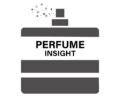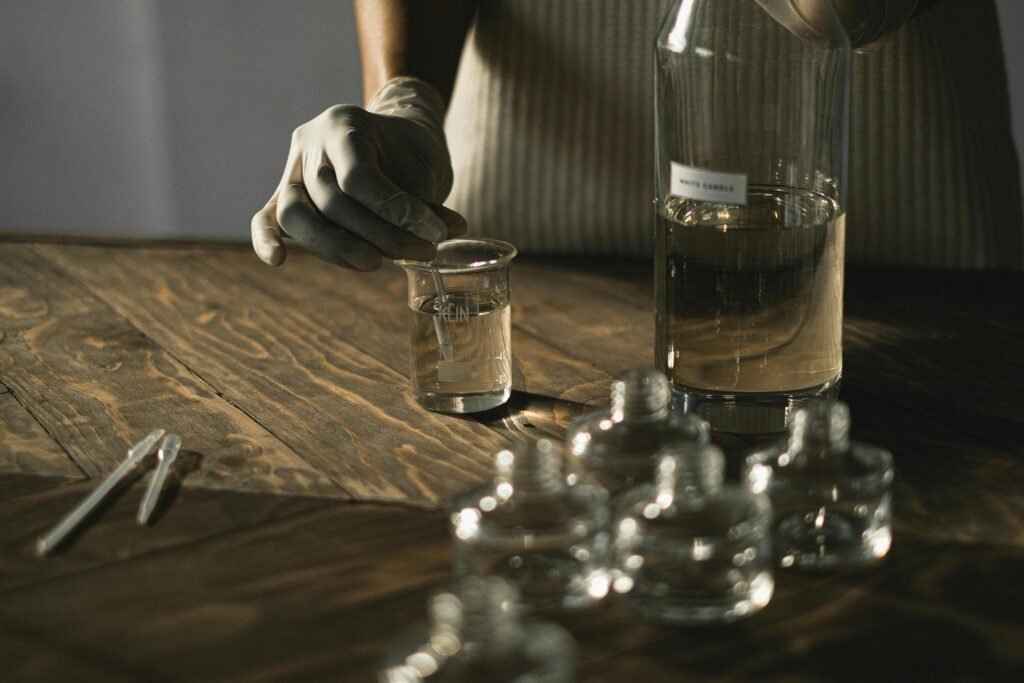Essential Tools for the Artisan Perfume production is an art and science it requires a combination of artists and scientists. Whether you are a perfumer or just a hobbyist, having the right equipment in place makes all the difference between making perfumes and making samples. Here, the idea of the article is described, which is the focus on the description of the necessary equipment and its roles in perfume making and the significance of all that.
Glassware: Beakers and Flasks
Purpose: Primarily, for measurement and for the preparation of mixes in certain food recipes involved in preparing meals.
Types: Graduated beakers and round bottom flasks are the commonly used equipment’s for measuring and combining various perfume components.
Vials and Sample Bottles
Purpose: These are mostly employed for housing and testing of fragrances samples.
Types: Sample flasks or mini glass ampoules should be possible, that some modifications will be tested and some kind of record will be kept on the differences.
Blending Tools:
Magnetic Stirrer Purpose: In is particular, it is suitable for preparing solutions in large volumes since it accurately stirs the products.
Advantages: This makes for aroma homogenization, which is a very efficient method of saving time compared to stirring by hand.
Spatulas and Stirring Rods
Purpose: For use when moving and combining of solid or semi-solids substances is required.
Materials: They are commonly made of glass, metal or plastic. They assist in compounding procedures in such a way that forms of contamination are prevented entirely.
Measurement Instrumentation: Digital Scales
Objective: These must be utilized to measure accurately the ingredients in precise measurement.
Benefits: There is consistency with the help of digital scales, thus the appropriate ratios in formulating are upheld.
Hydrometers and Refractometers:
Objective: They are utilized to determine specific gravity and the content of liquid ingredients.
Usage: These tools keep checking that the actual composition of the fragrance is as per the set specifications.
Distillation Instrumentation: Distillation Apparatus
Purpose: It has also a function of extraction of oils from plant materials undergoing steam distillation.
Parts: Thus, it often consists of a distillation flask, an efficiency of a condenser, and receiving flask for separation of volatile substances.
Essential Oil Extractors Purpose: Essential oils are produced by cold press method or solvent extraction.
Types: Now there are several extractors based on the type of extraction performed.
Storage Containers
Storage Tanks Purpose: They can hold big stocks of ingredients that are used in the production process or the final products – perfumes.
Materials: Stainless steel or glass tanks are the preferred materials of choice due to their resistance to corrosion and ease of cleaning.
Aging Bottles Purpose: This is to enable perfumes to mature, which can enhance the fragrances.
Characteristics: darkly tinted glass is usually used to prevent the oxidation of its contents and damage by light.
Filtration Apparatus : Apparatus Filter Paper and Funnels
Purpose: They phase out solid particles that either float or settle at the bottom of a fluid.
Advantages: As a consequence, the product obtained is non-turbid and devoid of other undesirable solid contents.
Vacuum Filtration Systems Use: It is also quicker and easier for use when filtering liquids, and particularly so for large portions of liquids.
parts involved: Vacuum pump, a filter flask, and also the filter paper
Sensory Evaluation Tools
Scent Strips and Blotters
Use: It is applied in smelly fragrance applications. These are also used to test smelly fragrances. In this process, people have the ease of comparing a scent profile without infecting the fragrance.
Diffusion Aromatherapy Devices Use: For smelly fragrance diffusion application while testing.
Applications: Helps create a suitable environment for sensory analysis.
Safety Equipment: Personal protective equipment
Use: Must be present in the area of handling volatile substances for safe performance.
Examples: Gloves, goggles, and lab coats are protective gear that can avoid splashes and irritation.
Ventilation System
Use: The ventilation system is very essential while performing strong odors and chemicals.
Importance: It avoids the diffusion of fumes that might risk the perfumer’s health.
Conclusion
Perfume making encompasses a wide range of specialized tools, each with its own functional difference during the creative procedure. Accurate measuring cups, safe storage solutions, and many more are comprised of what is required when producing high-quality fragrances. From just starting a career in perfumery to an experienced professional who understands and invests appropriately in the right tools in order to really enhance an art done-exquisite scents that inspire and capture the senses

